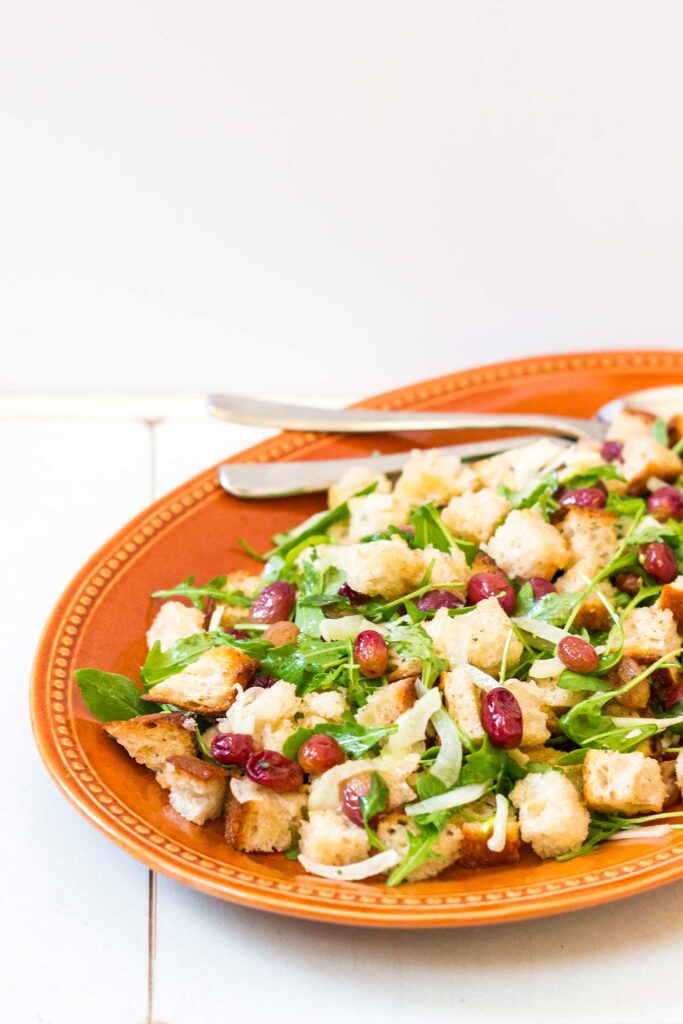Parsley is a popular garnish in restaurants. It gives a refreshing taste in many dishes, like soups and stews. It is a bright green herb that is widely grown for its flavor and appearance and is found all over the globe. Parsley is a biennial herb, meaning it can grow every two years. It only requires a small amount of sunlight to germinate. It is a great addition to any indoor herb garden. Substitute For Parsley shared below are excellent alternatives to use in your meals for healthy and tasty dishes overall.
Parsley is a versatile and mild herb that adds a fresh and herbaceous taste. Parsley leaves can also be used as a garnish. There are two types of parsley: curly and flat-leaf. It can be dried or fresh. It is low in calories but high in vitamins and minerals.



Don’t let this one slip away — pin it now and thank yourself later!
Don’t let this one slip away — pin it now and thank yourself later!

Alternatives and Substitutes For Parsley
Parsley is a great herb to have on hand. However, it can be difficult to find substitutes that offer the same flavor and appearance. Below, we have listed some amazing substitutes for your convenience.
Celery Leaves
It’s not uncommon to be accustomed to cutting off the leaves on celery sticks before throwing them into the garbage. However, these leaves can be eaten, and, more importantly, they’re incredibly flavorful. The leaves are a punch. The dark green leaves contain the strongest taste and are more challenging and fibrous. This is why they should be cooked until tender in stews and soups or blended to make sauces or purees.
The leaves with a lighter shade are more delicate and have a milder taste. They have a robust flavor, but they are edible raw and served as salad leaves or garnishes because of their soft texture. While not a plant, celery leaves have an enticing flavor similar to parsley. It is an excellent substitute, particularly if you have an allergic reaction to parsley or other herbs. While the nutritional profile of celery leaves isn’t readily available, its nutritional profile could be comparable to that of the celery stalk.
Like basil, celery leaves can have a more robust flavor than parsley. Therefore, you should use a lesser amount of this green when using it as a substitute. Also, celery leaves have a more salty flavor and are used to make celery salt also in kitchen easily, which means you’ll also require reducing the salt content you use in the recipe. Celery leaves can be a fascinating alternative to parsley. However, they’re very similar to flat-leaf parsley, making them a great garnish.
Celery leaves possess the freshest and mildly spicy taste. You can use them in soups, salads, stock stews, sauces, and other dishes to enhance their flavor and add a refreshing and crisp taste. They are also helpful to garnish. If you’re using celery leaves to substitute for parsley, don’t cook them too long, they can lose their taste. Add them at the end of the cooking process or serve them raw in salads.

Oregano
It has a stronger flavor than parsley. It is still a good substitute for parsley. Still, you should use less than you would with parsley, especially if you are using dried oregano. Fresh oregano is an excellent substitute for fresh parsley. For strong taste, reduce the amount by half. It is important to note that if a substitute herb is more flavorful than parsley, you’re using the dried version of the herb instead, reducing the amount. Dried oregano is more flavorful than fresh parsley.
It is part of the mint family and a great substitute for parsley in Italian cuisines. It can complement the flavor of Mediterranean dishes such as Greek and Italian food. Oregano’s main advantage is its ability to withstand time. Ancient Greeks, Romans, and others used it as a preservative in their meats, fish, and other foods. Although it can be substituted for parsley in many recipes, it has a more robust flavor and is not necessarily harmful. However, it may not suit your taste buds if you prefer a milder flavor for your dish.

Tarragon
Although it has a slightly different flavor than parsley, it can still be used as a substitute. You can use it for garnishing and flavoring. Because of its taste, you should use it in smaller quantities than parsley. If you have trouble controlling your blood sugar, tarragon can help. You can also mix it with herbs like chervil or chives. Tarragon has a strong flavor and mild pepperiness.
Tarragon, a bright-green aromatic herb similar to parsley, is quite different from other herbs. Commonly used in French cuisine, It is best to use this herb as a garnish instead of cooking. The flavor of tarragon differs from that of parsley. Although it can be used in cooking, it is best to only use small quantities. Tarragon, a fragrant herb with thin and glossy leaves, is most popular. You can find many types of tarragon. French tarragon, however, is the most commonly used in cooking.
It has a sweet-bitter taste with mint, pepper, vanilla, and eucalyptus hints. You can use it and its replacements in dishes like soups, salad dressings, chicken, egg, and fish recipes.

Chervil
Although it is very similar to parsley, chervil has a milder taste. You can use it as a substitute for fresh or dried parsley, which is often used in French cuisine. Because of its milder flavor, chervil can look almost like flat leaf parsley. Chervil has a delicate flavor, and it reminds of mixed parsley, tarragon, and other herbs. These leaves are similar to carrot greens. It’s a common ingredient for soups, salads, and sauces. In spice mixtures, herbs, chervil, tarragon, and parsley are all used together.
Parsley has a stronger flavor than chervil, so substitute one teaspoon parsley for two teaspoons of chervil. The curly, delicate texture of the Chervil leaves is similar to carrot greens. Although they look identical to parsley leaves, they are usually lighter in color and have frillier leaves than flat-leaf parsley. Chervil leaves may have blossomed, which is a sign that the herb is bitter.
It’s typically added last minute to preserve its delicate flavor. You can use it in omelets and classic Bearnaise sauces. It is also found in the herbs blend, parsley, tarragon, and chives. Chervil leaves, however, can be more difficult to find in supermarkets than parsley. Start by substituting one herb for the other. Once you better understand the difference, add some more to enhance the flavor.

Basil
Basil can be substituted for parsley if you are making an Italian dish. Basil has a more robust and more distinct flavor than parsley. However, the leaves of both herbs are the same bright green color. Fresh basil is only suitable for dishes that have more intense flavors. It is an excellent choice for garnishing purposes. Dry basil is a more subtle flavor than fresh and may replace parsley.
It also provides vitamin K, which stimulates blood clotting, strengthens bones, and increases bone strength. Garnishing is a key part of many recipes, including soups, pasta, and roasted vegetables. It has a strong-flavored, bright-green herb. It can also be used in dishes from other parts of the world that contain tomatoes. Basil is rich in antioxidants that protect cells against damage from free radicals.

Thyme
Although parsley is an excellent herb to include in your kitchen, it can be difficult to find it fresh, especially if you are on a tight budget. Thyme is available in both dried and fresh form. Thyme can be used to replace fresh parsley and save money on groceries. Thyme is not a popular substitute for parsley because it has a different flavor so sometimes you can also look towards thyme substitutes available in market for easy replacement in absence of parsley.
Thyme can enhance many dishes that contain parsley. Thyme can be substituted for parsley. The two herbs are related botanically and have many health benefits. You can combine both in certain dishes to enhance the dish’s flavor profile and overall taste. Thyme’s aroma is very similar to parsley, but it has less fruity undertones. Thyme can be used in place of fresh parsley in recipes, but it is stronger than parsley.

Cilantro
Although it is part of the parsley family, cilantro has a distinct flavor. Don’t use it as a substitute for parsley if you enjoy the flavor. This is because the herb is strong in taste and is popular for Mexican and Thai dishes. When fresh, it looks exactly like flat-leaf parsley, and this is why it can be used as a garnish substitute for parsley. Its flavor is very different with a strong, spicy, and slightly citrusy scent. Some people love it, while others can’t stand the smell.
Cilantro (also known as coriander) is a leafy spice. It can be dried or fresh and popular in Asian and Mexican cuisines. Like parsley, cilantro has high levels of vitamin K and vitamin A. You can find cilantro in most grocery stores’ produce or herb section. Look for bunches of dark green, crisp leaves. Avoid yellowed leaves. To prevent it from wilting, store the cilantro in a bag made of plastic and lined with paper towels. It should be kept in the refrigerator for approximately 2 weeks. Basil can be substituted for cilantro if you don’t like cilantro’s flavor.
Cilantro can also be added to soups or curries. It can be substituted for parsley in Mediterranean and Middle Eastern dishes such as Shirazi salad, Shakshuka, Tabbouleh, or Tabbouleh. It can be found in almost any grocery store. If you don’t want the strong smell of cilantro leaves, then skip it and go to the next option on the list.
Some people may experience a soapy taste from cilantro. This could be due to a particular gene. It is important to be cautious when using cilantro in recipes that include parsley as it can overwhelm other flavors. Cilantro has essential vitamins like vitamin C, vitamin A, and vitamin k.

Arugula
Although it is leafier green than an herb, you can use arugula as a salad green or herb. Its rich flavor makes this an excellent substitute for parsley. Calcium is a key ingredient in the plant that promotes stronger bones and muscles and better heart function. Arugula leaves are usually larger than parsley and other herbs. If you substitute arugula for parsley, you will use fewer leaves than you would with fresh parsley.
Arugula can be dried as a herb. These herbs are part of the parsley family with a bitter taste and mild flavors. These can be used as salad greens or in recipes that require subtle flavors, such as soups and stews. You should chop them finely. Arugula is not a herb; rather, it is a type of salad green. It’s also known as rocket, arugula, and roquette. However, the word ruccola is not the same as the name for the song Rocket Man.
Many different greens are part of the same family, like mustard greens or cabbage. These greens are sometimes called piccolo or ruccola by some people. Because of its bitter taste and peppery flavor, many cooks prefer to chop arugula finely before adding it into a dish. You will need to remove the stems from the arugula leaves with kitchen shears. Then, cut the leaves into smaller pieces than parsley.

Carrot greens
These parsley-related plants have a mild taste and bitter aftertaste. These can be used as salad greens or in recipes that require subtle flavors, such as soups and stews. You should chop them finely. Fresh carrots can be used to replace parsley if they are available. Carrot tops, like parsley, have a bitter taste but can withstand heat. They would taste great in some dishes like chimichurri. If they were chopped finely, they could be used as a garnish and a spice to dishes.
You can substitute parsley for carrot greens in almost any recipe. The taste isn’t as strong, but it will bring your dish a fresh and delicious flavor. You can make smoothies with them. Carrots are a simple vegetable to grow at home, and they are available on grocery shelves throughout the year. Although carrot greens are often thrown away at the farmer’s market stand or a dinner table, they can be eaten and are full of vitamins and minerals.
Carrot leaves are rich in vitamin K and vitamin A, C, and folate. Parsley can be substituted for carrot greens. They have a bitter taste similar to parsley, with a hint of celery. You can add them to soups, sauces, stocks, stews, and other dishes. You can substitute parsley with carrot greens in almost all your dishes.



Don’t let this one slip away — pin it now and thank yourself later!
Don’t let this one slip away — pin it now and thank yourself later!
Frequently Asked Questions about parsley
What is the purpose of using parsley?
Parsley is a herb used in foods and beverages as a condiment, flavoring, garnish, or food. Parsley seed oil is used in manufacturing as a fragrance in cosmetics, perfumes, soaps, and other products. Medicine is made from the root, leaf, and seed.
Is parsley an edible vegetable or fruit?
Parsley is a flavorful and nutrient-rich vegetable. It was first grown by the ancient Romans to use as a medicine food. It’s rich in vitamins A, C, and K, folate, and potassium, as well fiber and antioxidant compounds.
How does parsley affect food?
Parsley brightens flavors. Parsley balances savory dishes in the same way that lemon juice can make it taste better. Parsley is mildly bitter. Your tongue’s taste buds can detect five tastes: salty, sweet, and bitter.




